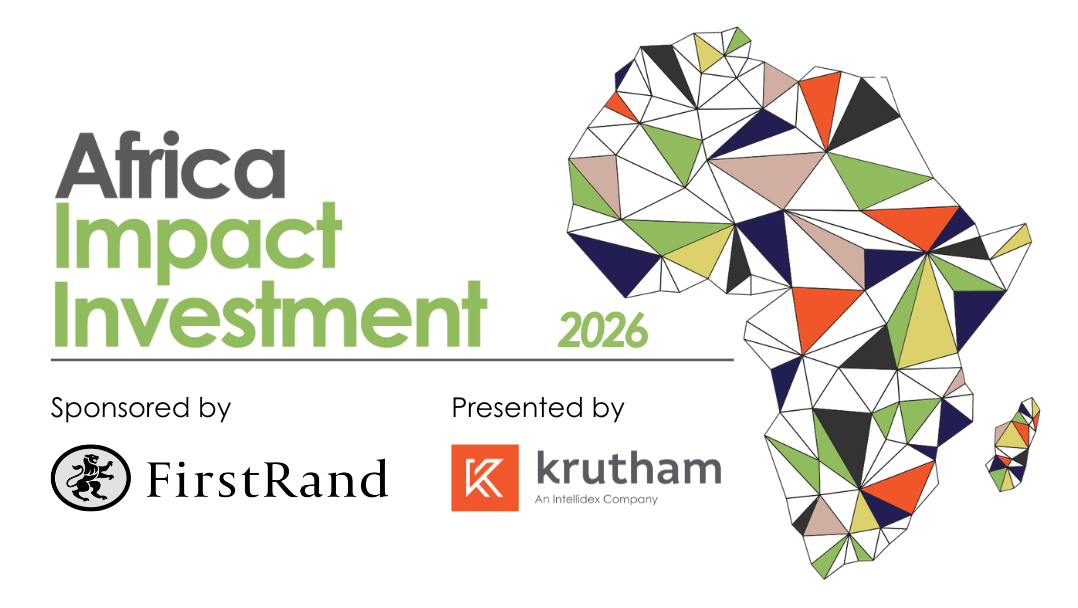This award recognises organisations that initiate projects and create the opportunity for social impact by other stakeholders. The nominee is an intermediary or “arranger” of stakeholders that together deliver impact and financial returns.
Impact For Africa S.p.A.
Asset Owner of the Year
This award is for asset owners and investors including pension funds, corporations, banks, governments and development finance institutions that deploy their capital to impact investments.
Impact For Africa S.p.A.
Background
Impact for Africa (IFA) is an impact investment company, incorporated in Italy, that focuses on value chain initiatives with social and climate impact in Rwanda and Namibia. The corporate structure is designed to maximise transparency and minimise costs, offering an investment opportunity in climate finance with low correlation to capital markets.
Originality of design
IFA specialises in impact investment in frontier markets and undeveloped value chains and bottlenecks. The company focuses on regenerative agriculture and agro-processing and aims to achieve a full circular economy by verticalising through the value chain. IFA leverages its local and global networks of partners such as One Acre Fund, the UN World Food Programme (WFP), and the Deutsche Gesellschaft für Internationale Zusammenarbeit (GIZ) [German Development Cooperation]. IFA’s investment and divestment timeframe is seven years. The company aims to achieve competitive returns with low correlation to capital markets and a lower risk profile through its alignment with social and climate finance. The company’s corporate structure consists of a holding company, incorporated in Italy, which directly invests in special purpose vehicles residing in the two target countries. IFA’s structure was designed to maximise transparency and minimise costs and facilitate capital flow from the northern to the southern hemisphere. During its first round of capital raising, IFA attracted a group of private individuals who invested their savings to sustain impact projects in Africa.
Meeting unfilled needs
IFA’s first couple of initiatives are: (a) in Rwanda through Avocado Oil Industries Ltd (AOI) in partnership with One Acre Fund and (b) in Namibia through Impact Africa Farms Pty Ltd (IFARMS) in partnership with the WFP. AOI is the first company to produce avocado oil at industrial scale in Rwanda with the aim to export a significant portion to premium markets. AOI believes in sourcing its avocados from smallholder farmers with a focus on export rejects and to transform the waste from the oil production into natural fertiliser to achieve a circular economy. IFARMS and the WFP have partnered to implement the first project that utilises seven hectares of land belonging to the Namibia Correctional Services to develop regenerative agriculture, provide knowledge transfer to offenders and employ the local community’s workforce. The project promotes sustainable use of land, mitigates climate change and promotes decent work and economic growth. The project will be replicated on a larger scale, contributing to Namibia’s food self-sufficiency.
Theory of change
If IFA provides capital and knowledge to frontier markets to unlock intrinsic values in undeveloped value
chains and bottlenecks, then a circular economy can be achieved.
Impact thesis
IFA invests in frontier markets and unlocks the intrinsic values in undeveloped value chains and bottlenecks. In so doing, the company prioritises regenerative agriculture and agro-processing to achieve a full circular economy by verticalising through the value chain. IFA’s projects focus on reducing food waste, developing regenerative agriculture practices, promoting food self-sufficiency, creating employment opportunities for local communities and supporting smallholder farmers with alternative income streams. This is achieved using cutting-edge technology such as smart drip irrigation systems, satellite-based decision-making tools and tech-enabled traceability tools. Additionally, IFA aims to develop climate resilience through carbon sequestration and capture, contributing to global efforts to mitigate the impacts of climate change.
SDG linkages
Impact
The environmental and social impact IFA plans to achieve include, but is not limited to:
- Increased food self-sufficiency and reduction of food waste, leading to improved food security for the population.
- Working towards no poverty, decent work and economic growth, and reduced inequalities.
- Promotion of sustainable land use practices, including regenerative agriculture and afforestation, leading to improved environmental outcomes such as carbon sequestration.
- Creation of job opportunities for local communities, leading to improved economic outcomes and poverty reduction.
To measure its environmental and social impact, IFA tracks several metrics such as litres of water used, number of hectares of land under regenerative agriculture and afforestation practices, quantity and quality of food produced, number of local jobs created and sustained, carbon sequestration rates measured by monitoring the amount of carbon stored in the soil and biomass, biodiversity and education as a share of labour costs.
IFA aligns its impact measurement with frameworks such as the Global Reporting Initiative and Principles for Responsible Investment to ensure that its metrics are in line with global sustainability standards. By tracking these metrics, IFA can continuously assess and improve its sustainability practices and contribute to a more sustainable future for all.
Financial performance
The target ticket size is €10m (raising in multiple tranches is allowed) with an investment period of four years and divestment period of three years.
Potential for replicability
The IFARMS project in particular promotes the sustainable use of land, mitigates climate change and promotes decent work and economic growth. The project will be replicated on a larger scale, contributing to Namibia’s food self-sustainability.
Risks
| Risk | Mitigation |
|---|---|
| Political | Namibia and Rwanda are politically stable with very low corruption indexes |
| Foreign exchange | Self-hedged portfolio with 50% of proceeds in hard currencies |
| Market | Clear off-takers and/or strongly mitigated market risks |
| Exit | Established relationships with private and public secondary market funds |
Share
This research report was issued by Krutham South Africa Pty Ltd.
Krutham aims to deliver impartial and objective assessments of securities, companies or other subjects. This document is issued for information purposes only and is not an offer to purchase or sell investments or related financial instruments. Individuals should undertake their own analysis and/or seek professional advice based on their specific needs before purchasing or selling investments.
The information contained in this report is based on sources that Krutham believes to be reliable, but Krutham makes no representations or warranties regarding the completeness, accuracy or reliability of any information, facts, estimates, forecasts or opinions contained in this document. The information and opinions could change at any time without prior notice. Krutham is under no obligation to inform any recipient of this document of any such changes.
No part of this report should be considered as a credit rating or ratings product, nor as ratings advice.
Krutham does not provide ratings on any sovereign or corporate entity for any client.
Krutham, its directors, officers, staff, agents or associates shall have no liability for any loss or damage of any nature arising from the use of this document.
Disclosure
The opinions or recommendations contained in this report represent the true views of the analyst(s) responsible for preparing the report. The analyst’s remuneration is not affected by the opinions or recommendations contained in this report, although his/her remuneration may be affected by the overall quality of their research, feedback from clients and the financial performance of Krutham group entities.
Krutham staff may hold positions in financial instruments or derivatives thereof which are discussed in this document. Trades by staff are subject to Krutham’s code of conduct which can be obtained by emailing mail@krutham.com.
Krutham may have, or be seeking to have, a consulting or other professional relationship with the companies, sovereigns or individuals mentioned in this report. A copy of Krutham’s conflicts of interest policy is available on request by emailing mail@krutham.com. Relevant specific conflicts of interest will be listed here if they exist.
- Krutham provides independent advice and independent research to a wide range of investors and financial institutions on Eskom, Denel, Transnet, Land Bank and SAA. Krutham’s interactions with all clients on Eskom, Denel, Transnet, Land Bank and SAA may include business confidential information but does not include MNPI and so does not provide a conflict. Krutham does not ‘act’ or ‘advocate’ for or ‘represent’ any of these clients. Krutham has regular interactions with government, Eskom, Denel, Transnet, Land Bank, SAA and other related entities connected with the SOE situation but does not provide paid consulting services or paid advice to any of these entities. These interactions are governed by Krutham’s own conflicts of interest policy as well as secrecy rules of the respective institutions or state-owned companies.
- Krutham provides a range of services into ‘organised business’ groupings in South Africa, which includes independent bespoke research and advice. Krutham is compensated for these services. Krutham does not ‘act for’ or ‘advocate’ for or ‘represent’ any of these clients.
- Krutham is currently involved in policy design work on a number of government priorities.
Copyright © 2023. All rights reserved. This document is copyrighted to Krutham South Africa Pty Ltd.
This report is only intended for the direct recipient of this report from a Krutham group company employee and may not be distributed in any form without prior permission. Prior written permission must be obtained before using the content of this report in other forms including for media, commercial or non-commercial benefit.









